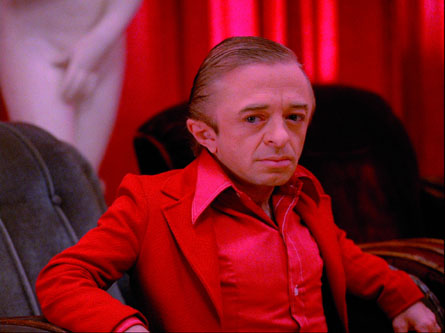
Review: Pacôme Thiellement, Cinema Hermetica (Paris: Super 8, 2016).
Pacôme Thiellement’s book is a powerful condemnation of all that is fake and life-denying in the modern world and a call for us to tear down the walls of our spiritual prison in order to breathe again the fresh air of authentic human and metaphysical belonging.
The fact that this takes the form of a collection of essays about films is nothing less than remarkable, as an attempt to focus a critique of contemporary times through the lens of one of its principal cultural media could easily have been a self-contradictory disaster.
In Cinema Hermetica, currently only available in French, the author manages to combine an informed analysis of cinema with an overview of its place in our world, showing how it occasionally acts as a beacon for ideas that warn us off the rocky disaster of an industrial capitalist future.
One of the threads of the book is, of course, the films on which Thiellement focuses, namely: Nosferatu (F.W. Murnau) and Nosferatu the Vampyre (Werner Herzog); Freaks (Tod Browning); The Tenant (Roman Polanski); Possession (Andrzej Zulawksi); Suspiria (Dario Argento); Céline et Julie vont en bateau (Jacques Rivette); Mr Arkadin/Confidential Report (Orson Welles); Chinatown (Polanski); Opening Night (John Cassavetes); Nymphomaniac (Lars von Trier) and The Shining (Stanley Kubrick). David Lynch also gets a lot of passing mentions!
The second thread is a metaphysical view of the world, evidently inspired greatly by the philosopher René Guénon, which combines a belief in the vital unity of the cosmos with a scathing contempt for the modern capitalist world.

What fascinates Thiellement are the points at which these two threads intersect. He sees cinema in the 20th century as having allowed a limited resurfacing of an underground metaphysical current of opposition with which he identifies.
He writes of this current: “We have always been there. We were the witches and the druids, the shamans, the wanderers and the fools. We were the tumblers, the hermits and mages”.
He sees a possible source for this metaphysical stream in the ancient Sabean culture, and suggests it surfaced again in 15th century Florence and then flowed into the Theatre of Memory devised by Renaissance philosopher Giulio Camillo: “The Theatre of Memory was to be a theatre of images mixed with hermetic and cabbalistic symbols, based on the rules of Ars Memoria…”
This same form, he suggests, re-emerged with modern film: “Cinema became, for a while, the temporary temple of the hermetic religion” .

With humanity’s metaphysical understanding increasingly stifled by materialistic capitalist society, it had to find new ways to express itself and “the most authentic spirituality could only now be expressed in the terrifying or cruel form of the horror story”.
Hence films like Nosferatu represent a kind of 20th century spirituality, Thiellement argues, backing up his theory with evidence of “occult” interest among those who created it.
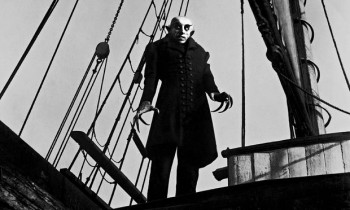
He is not, however, willing to accept any apparently “occult” element as valid. Indeed, he repeatedly warns of the negative influence of contrived cults like Theosophy, which over the decades developed into “a New Age movement which is nothing but the pseudo-spiritual accompaniment of capitalism, a psychedelic variant of capitalist domination and its ultimate ambition: the immortality of a handful of the elite in exchange for the accumulated misery of everyone else”.
Instead, we should look closer to home for our inspiration: “The idea that the metaphysical secret isn’t just some strange long-lost folklore, but a tradition that lives on in children’s games, nursery rhymes and stories…”
“Tradition is us. Ancestrality is us. We are with the witches and traditional magicians against the corrupted priests and politicians of the modern world. Céline et Julie vont en bateau tells us a story that we know but have forgotten: the story of our magical nature, of our spiritual being”.
Thiellement sees popular culture, which lingered on in the form of the carnival, as looking back to the pre-historical golden age “when humankind lived happily and there was no inequality, no hierarchy and no deprivation… The golden age was succeeded by three other ages, silver, bronze and iron, which mark our journey away from bliss and the establishment of a regime of inequality and fear, the birth of agriculture, our domination over animals and the appearance of guns”.
But even carnival has now been neutered by modern civilization, active participation replaced by passive consumption. Carnival becomes entertainment and is placed on a stage which marks the distinction between performers and spectators.
“Freak shows, and all their cruelty, disappear, but as medicine progresses, and particularly thanks to post-ultrasound abortions, freaks are also disappearing as part of an ever more reductive vision of the human being”.
“Freaks reminds us of the qualities of those whom we first regarded as demigods, then as curiosities and finally as sick people whom science would help us to put right”.
If Thiellement’s cinematic references look to the 20th century, it is because he now sees more hope in the shape of TV series such as Twin Peaks, Angel, and Daniel Knauf’s Carnivale which, he judges, amplifies the anti-modern voice of Freaks and “manages to combine, in a wholly new form, the finest elements from the thought of Nietzsche and Guénon”.
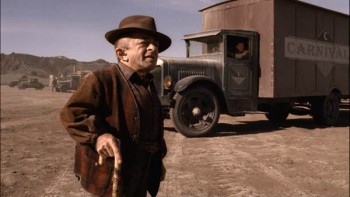
The films that Thiellement most admires are those which face up to the reality of the world we find ourselves living in, as well as the reality of other levels of consciousness that have been repressed.
He stands up for the films of the much-maligned Danish director Lars von Trier: “Their object has always been to make your life more difficult, your wounds more painful, your opinions less solid, your feelings less pure than they seem. But their object is also to make your heart deeper, your mental state more tender, your empathy more developed, your spirit more obsessed with the discovery of truths”.

And he sees von Trier’s Nymphomaniac as forming part of a broader cultural critique of modern times: “As Patricia Rousseau has explained, the real subject of the film isn’t sex but the emptiness in our lives and the way in which we fill it: for Joe it is with sex…”
Thiellement does not hide the fact that he shares, with Guénon, a radical revulsion for capitalist civilization. “One day, when global civil war has broken out, we will laugh at this lying world”, he declares at one point.
He identifies the same viewpoint as being held by certain directors of the films he describes, despite the fact that being totally opposed to modernity is considered more or less unthinkable in our liberal-capitalist society.
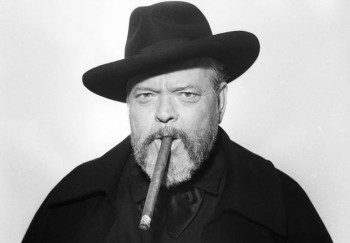
For instance, he cites a TV interview in which Orson Welles speaks of his nostalgia for the English past, his love of Shakespeare and their shared hatred of the modern world of their respective times.
And he also identifies this dissenting viewpoint as a key subtext to Rivette’s Céline et Julie vont en bateau: “In fact, what the film explains to us is that it doesn’t really matter who killed the little girl. This idiotic question, a corollary to the theme of ‘individual responsibility’, is the same one that this corrupt society constantly asks us, as it urges us to focus on news trivia, to be frightened of individual murderers, rather than to grasp that it’s the whole of this world that we have to do away with…
“Céline et Julie changes direction when Céline and Julie stop asking who has killed the little girl. It’s neither the blonde, the brunette or Miss Angèle who killed the girl. It is the world, it’s all of this corrupt world that did it”.
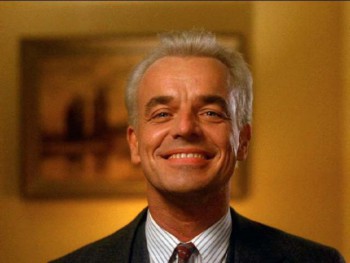
An intriguing element of Thiellement’s book is his repeated references to the “counter-initiation” and its agents – a strange term, used by Guénon, which refers to those who continue to drag humanity away from the light and who deliberately pursue destructive, selfish, life-destroying schemes.
Fictional examples cited by the author include the vampire as “psychic essence of a world devoured by material passion” in Nosferatu, Laura Palmer’s business attorney father Leland in Twin Peaks, and, most of all, Mr Arkadin in Orson Welles’ film of that name, known in the UK as Confidential Report.
This 1955 film is, he says, all about “the secret of power in the modern world, a secret about the identity of the ‘agents of the counter-initiation’: the speculators in finance, in international business and in the ‘shadowy spirituality’ for which Gregory Arkadin is Welles’ archetype”.
He describes Arkadin, played by Welles himself, as “an archetype of success in Modern Times, that’s to say a man who wipes out his own past, murders his friends with his own hands and gets rich by means of the worst misdeeds that the times allow him”.
Arkadin is “an arms dealer, a speculator in the financial world and a shareholder in many companies” and it is appropriate that arms dealing is among Arkadin’s misdoings. The anti-ethos of the capitalist mindset – by which making money is regarded as good – is taken to its logical limit when we see individuals enriching themselves from the death and torture of others.
According to the thing we call the “law”, they are only in the wrong if they infringe the technical rules within which they are supposed to work – hence the remarkable recent court victory of the anti-militarist activists who tried to halt the DSEI arms fair in London in 2015.

But in fact – as all those protesting against the hideous event know in their hearts – the very fact that the event takes place at all, that the arms industry even exists, that anyone can seek to profit from selling items to be used to maim and kill, is fundamentally wrong.
Even the least “religious” of us can come close here to an understanding of an absolute immorality – the besuited murderers-by-proxy swanning arrogantly past the protesters into the ExCeL Centre really do come close to being the incarnation of something we might call evil.
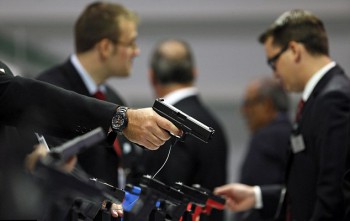
No doubt there have always been, and always will be, people like Arkadin in our midst – sociopaths devoid of any sense of belonging to a greater community and whose every waking breath is devoted to the pursuit of self-gain.
But in past eras these people would have been regarded as exceptions, as bad people who transgressed a shared code of ethics.
The nightmare today is that this sort of behaviour is positively encouraged by our society and is imposed on us as a new kind of norm. Anyone who declines to “get on in life, “look after number one”, make a “success” of themselves is regarded as a failed human being.
Anyone who clings to “old-fashioned” notions of right and wrong, of a moral obligation to put communal interests ahead of the merely personal, will quickly find themselves pushed to the margins of our society.
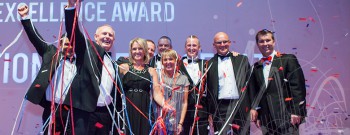
Today’s “heroes” are, in fact, villains – businessmen, speculators, property developers, profiteers. As Thiellement says: “What defines the modern world, in the sense used by Shakespeare, Orson Welles or René Guénon, is a society that celebrates this kind of individual… It’s the basis of liberalism: free competition, which leads inexorably to this personal apocalypse, the war of each against all and all against each”.
The problem runs deep. Even the philosophies which prop up industrial capitalism insist on seeing the starting point of existence as being the individual’s experience, from which he or she looks out into a world of others, rather than into a shared world to which we all belong.
Given that individual life inevitably ends in individual death, we spend our years seeing nothing beyond the dark walls of the deep pit of our own individuality.
To rise above individualism, to rise above the level of Arkadin and all the other arms dealers, bankers, conmen and greed-merchants who run our world, is not to surrender our individuality.
On the contrary it is to embrace it for what it is, to understand ourselves for what we are – parts of a greater entity, an all-inclusive universe, which finds a specific and active physical presence through us and our individual free will.
To rise out of the darkness of separation is to rediscover an empowering individual shining that is emitted directly from the sun of collective wholeness.
* A write-up of my new novel, The Fakir of Florence (whose themes overlap with those discussed by Thiellement…) is featured here in the latest issue of Winter Oak’s online bulletin The Acorn.
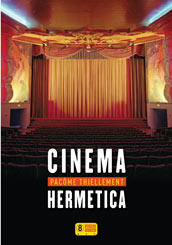
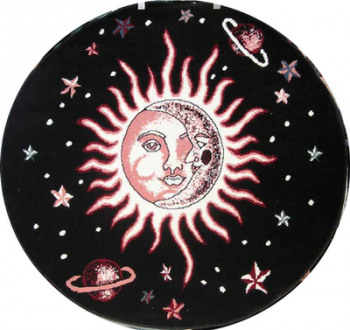
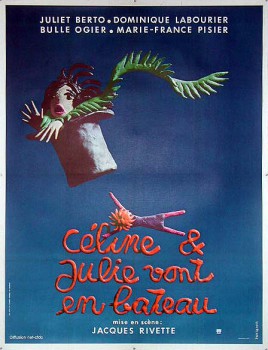
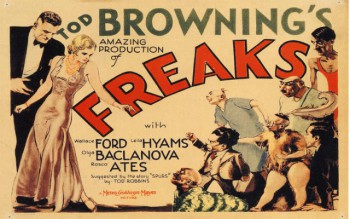
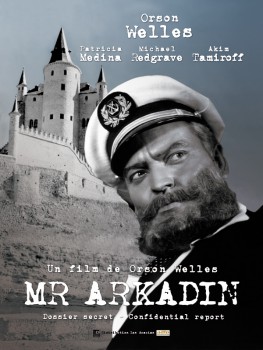

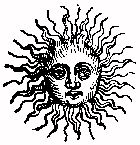
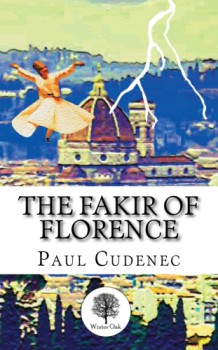
Leave a Reply